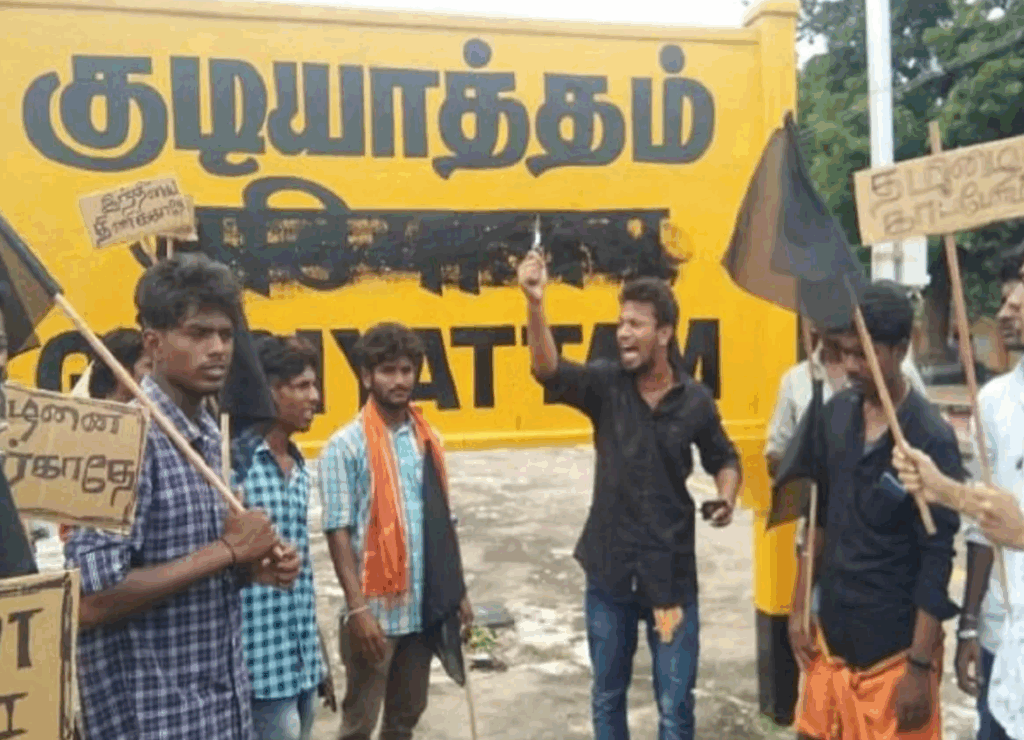Tamil Nadu Chief Minister M.K. Stalin has announced that his government will introduce a bill banning Hindi hoardings and Hindi-language films across the state. The legislation, to be presented on the final day of the Assembly session, represents the latest effort by the DMK-led government to uphold the Tamil language and resist what Stalin describes as the “imposition of Hindi” by the Centre.

This step comes against the backdrop of Stalin’s repeated assertions that Tamil Nadu’s two-language policy—Tamil and English—has delivered strong results in education, skill development, and employment. He believes embracing Tamil pride while maintaining English proficiency has given the state a unique advantage in both local and global opportunities.
DMK’s Stand Against “Hindi Imposition”
The DMK has consistently accused the BJP-led central government of promoting Hindi dominance through the National Education Policy’s three-language formula. Stalin has been vocal in his opposition, claiming that such policies undermine the linguistic diversity of India and threaten Tamil Nadu’s cultural autonomy.
He has stated that while his government does not oppose Hindi as a language, any attempt to make it compulsory would be an affront to Tamil self-respect. The new bill is therefore seen not as an act against Hindi speakers but as a reaffirmation of Tamil Nadu’s right to linguistic self-determination.
From Symbols to Policy: Tamil First
Earlier this year, the Tamil Nadu government replaced the official rupee symbol ‘₹’ with the Tamil letter ‘ரூ’ in all state budget documents. The symbolic shift was intended to highlight Tamil pride and independence in administrative communication. Critics had called it a political statement, but for DMK supporters, it signaled the government’s steadfast dedication to promoting Tamil language use across public institutions.
The planned ban on Hindi films and signage extends this effort from symbolism to policy, placing practical restrictions on the visibility of Hindi in daily life across the state.
Political and Cultural Implications
The move is expected to fuel debate nationwide. Supporters view it as a rightful resistance to cultural homogenization, ensuring Tamil Nadu remains a bastion of linguistic diversity. Opponents, however, argue that such a ban could limit artistic freedom and economic opportunity in the entertainment sector.
Nevertheless, within Tamil Nadu, the bill is likely to strengthen the DMK’s political position, resonating with its long-standing Dravidian ideology centered around regional pride, social justice, and linguistic equality.
The Road Ahead
If passed, the bill will mark a historic moment in Tamil Nadu’s language policy, potentially setting a precedent for other states to assert stronger linguistic autonomy. As debates intensify in the Assembly, Chief Minister M.K. Stalin’s message remains clear: Tamil Nadu will continue to champion its language, culture, and identity without compromise.

